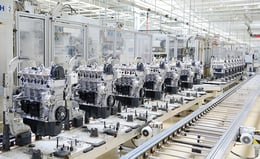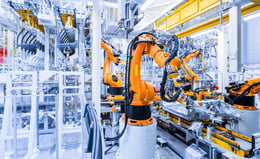Are Your Best Workers Inadvertently Putting Your Supply Chain at Risk?
Nancy Sarpolis - November 30, 2021

Every manufacturing company has a handful of “go-to” people who know how to get extra productivity out of a balky machine, find an elusive part or adjust the production plan to accommodate a time-sensitive last-minute order. These are an organization’s best workers and their enthusiasm, ingenuity and strong work ethic play an important role in the company’s overall success.
Until they leave.
“Organizations spend a lot of time and resources developing knowledge and capability. While some of it gets translated into procedures and policies, most of it resides in the heads, hands, and hearts of individual managers and functional experts,” according to the Harvard Business Review. “Over time, much of this institutional knowledge moves away as people take on new jobs, relocate, or retire.”
One doesn’t have to dig too deep to find news articles about high turnover and labor shortages in just about every industry. The U.S. Bureau of Labor Statistics reports that the 2020 turnover rate in manufacturing was 44 percent. Recruitment agency DSJ Global says 41 percent of supply chain professionals said they are unlikely to stay with their current employer in pursuit of better opportunities for career progression. Other studies estimate that for every one qualified supply chain manager there are six available jobs.
What’s worse, another report finds that large businesses lose $47 million annually to inefficient knowledge sharing.
Retain knowledge through digitalization
Digitalization could be the answer to retaining—and maximizing—valuable institutional knowledge. Technologies that document, store and analyze information allow everyone in the organization to become an expert.
The key is in capturing institutional knowledge in such a way that it can become digitized and therefore standardized and repeatable. Start by establishing the “single source of truth”—a single repository for all manuals, spreadsheets and data sources for your process documentation. With a central datastore, each stakeholder can access the data they need to do their jobs and can therefore do those jobs in a consistent manner.
Digitalization is like “pulling exclusive information out of someone’s head and making it visible to teams,” according to Industry Week. And, research shows companies that proactively manage institutional knowledge are not only more efficient, but also more profitable.
Find the right technologies
As organizations move forward with digital transformation, isn’t a matter of installing one monolithic software solution or adding one key technology to the value chain. The goal is to utilize technologies that make humans more effective at their jobs. And, manufacturers don’t need to start from scratch to create an effective smart factory. Even small job shops can upgrade technology one piece at a time. Because each piece of technology will power operational improvements on its own, saved costs and increased revenue can be re-invested into additional technology solutions. In this way, a digital transformation can be completed within the organization’s timeline and budget. Most businesses are investing in analytics technology any way, which means that part of the challenge is simply choosing the right technology for the organization’s needs.
Take a proactive approach
Organizations that proactively document workplace wisdom while experienced workers are still on the job—and leverage smart technology to capture intelligence—can take the time to do it right. It’s too late to think about preserving institutional knowledge when employees give notice or announce their retirement.
The time to start is now.
If you want to learn more get your Guide to Industry 4.0
In this Guide you will learn:
- Key facts about Industry 4.0
- Benefits of implementing the Industry 4.0 framework
- How your company can move to the future of the supply chain industry
LATEST POSTS
- Understand Circular Economy in The Manufacturing Industry
- How Can Industry 4.0 IT Integration Be Achieved Smoothly?
- The Significance of Order Sequencing in Discrete Manufacturing
- How to improve your Supply Chain Management: The Power of Control Towers
- Optimizing Human Resource Scheduling in Manufacturing: A Technological Approach



